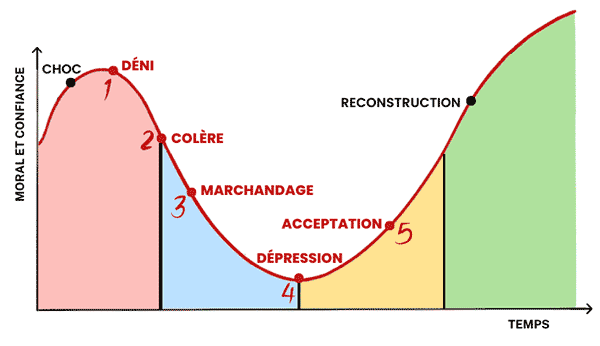THE’insomnia is a common disorder menopause. This poor rest often results from episodes of night sweats who wake up several times, especially in the second part of the night, when the proportion of sleep slow deep decreases. But, in addition to the discomfort of hot flashes, sleep also naturally changes with age, and it’s normal not to sleep exactly the same at 50 as you do at 20. Over time, the share of slow deep sleep gradually decreases, the sleep becomes more fragmented, and the total amount tends to decrease. Not to mention that, sometimes, the neighbor in bed starts to snore. Any period of hormonal upheaval, on its own, however, can disrupt the nights, as estrogen tends to increase sleep time and quality.
Some women also experience periods of insomnia during menstruation, when the rate ofestrogen abruptly fall. Sleep disorders are also accentuated in the event of a depressive tendency or in addition to stress (the progesterone no longer exerts its calming effect). Also, determining what comes down to each of these factors is not always easy.
Avoid sleeping pills
The hypnotic drugs induce poorer quality sleep and may be addictive. If we can do without it, that’s better. The hormonal treatments for menopause are known to significantly reduce these sleep disorders. According to a Brazilian study (in “Menopause”, February 2011), isoflavones also improve the quality of sleep and reduce the frequency of insomnia. Complementary medicine offers other alternatives, in particularhomeopathy (Lehning L.72) and the herbal medicine : herbal teas chamomile, linden or orange blossom in the evening, or even more radical, mother tincture of passionflower, of valerian or hawthorn.
Some food supplements against hot flashes also include ingredients more specifically intended to promote sleep (Menophytea sleep). If you want to put all the chances on your side to have sweet dreams, you must also agree to review your lifestyle: reduce stimulants, avoid too large dinners, ensure a good intake of magnesium and do it regularly of the’physical exercise, but especially not in the evening.
Read also :
A third of premenopausal women suffer from insomnia
Menopause: 10 solutions to sleep well














